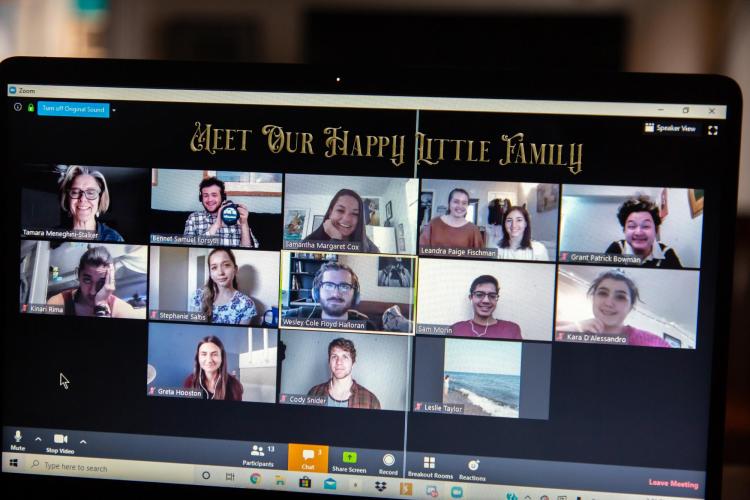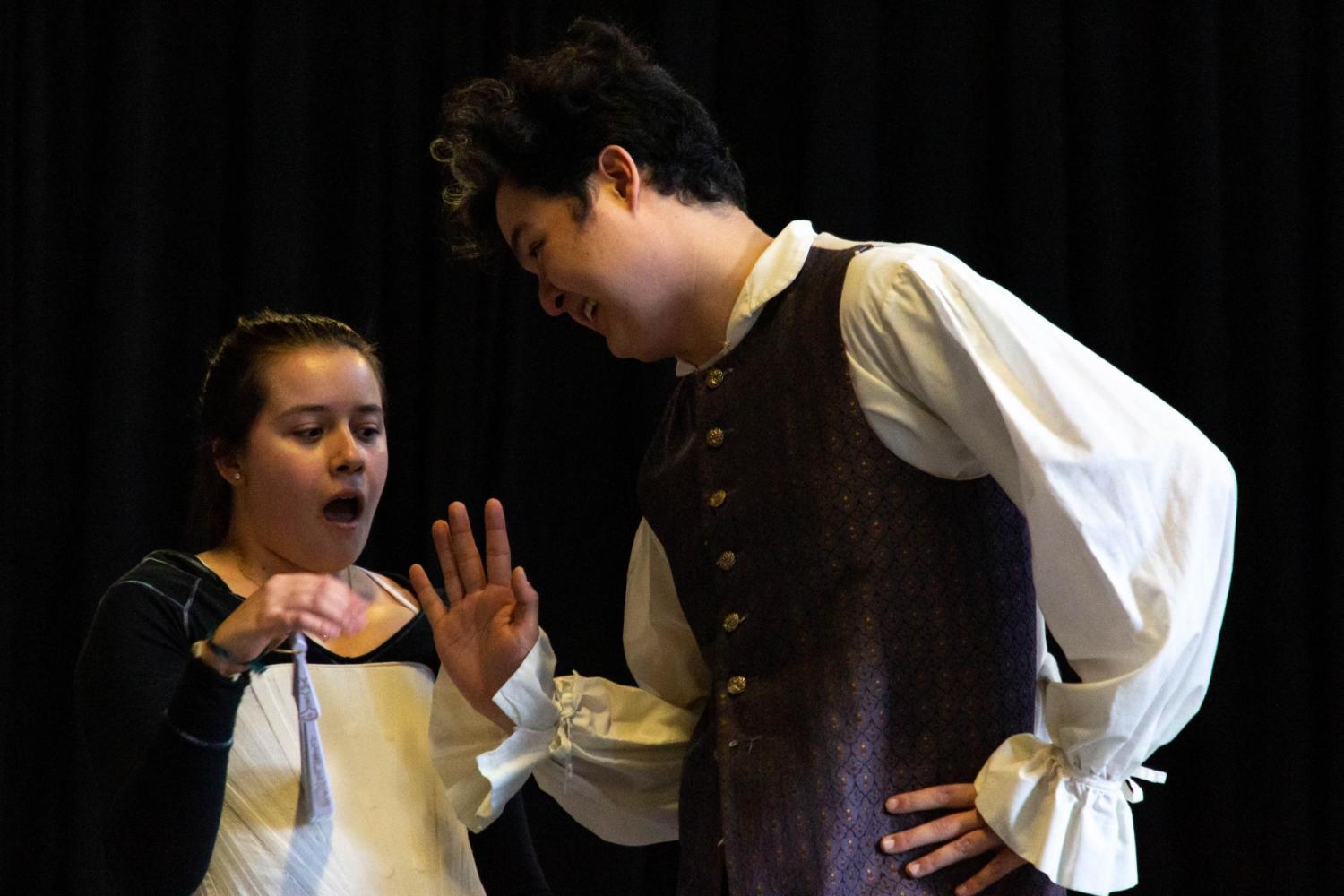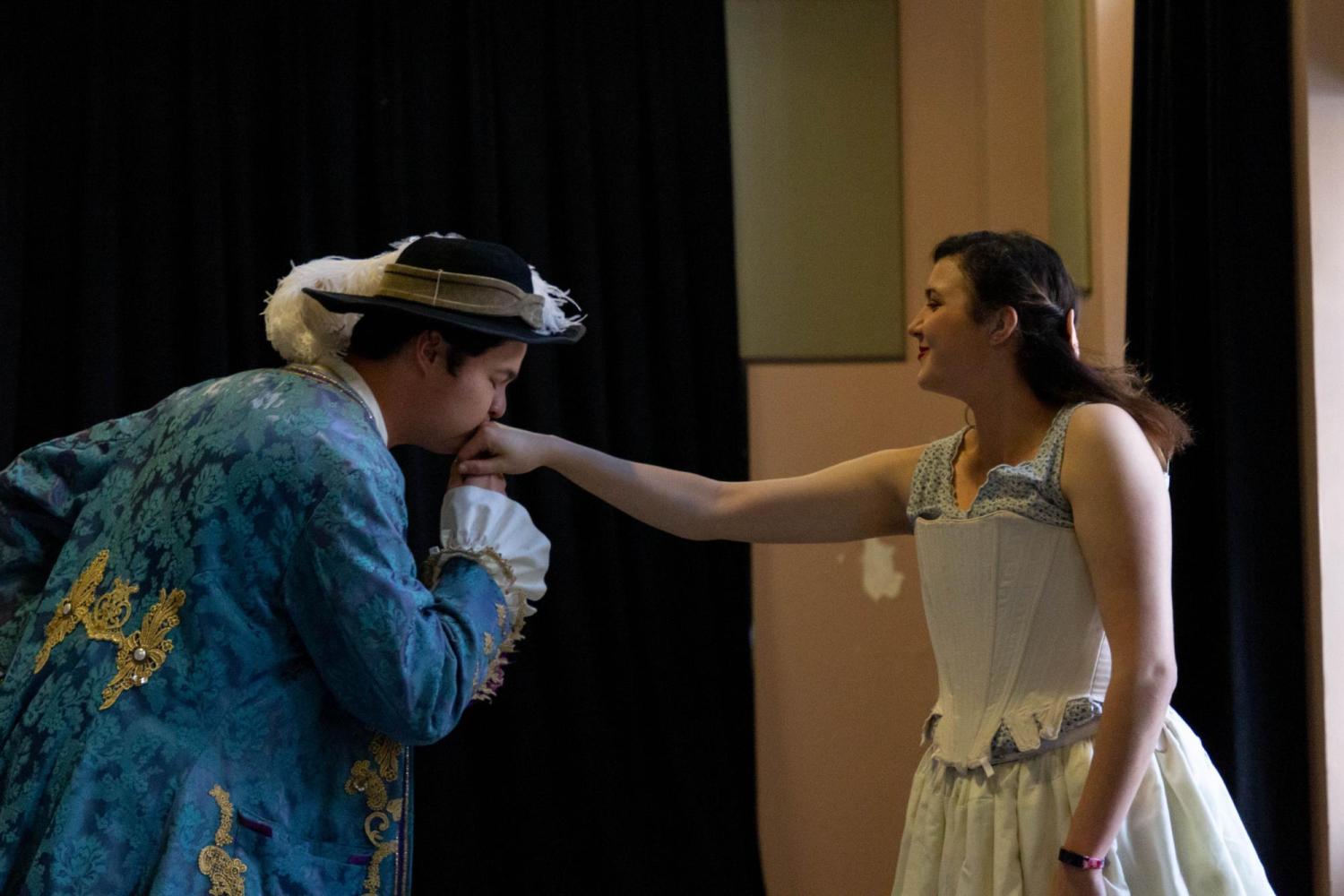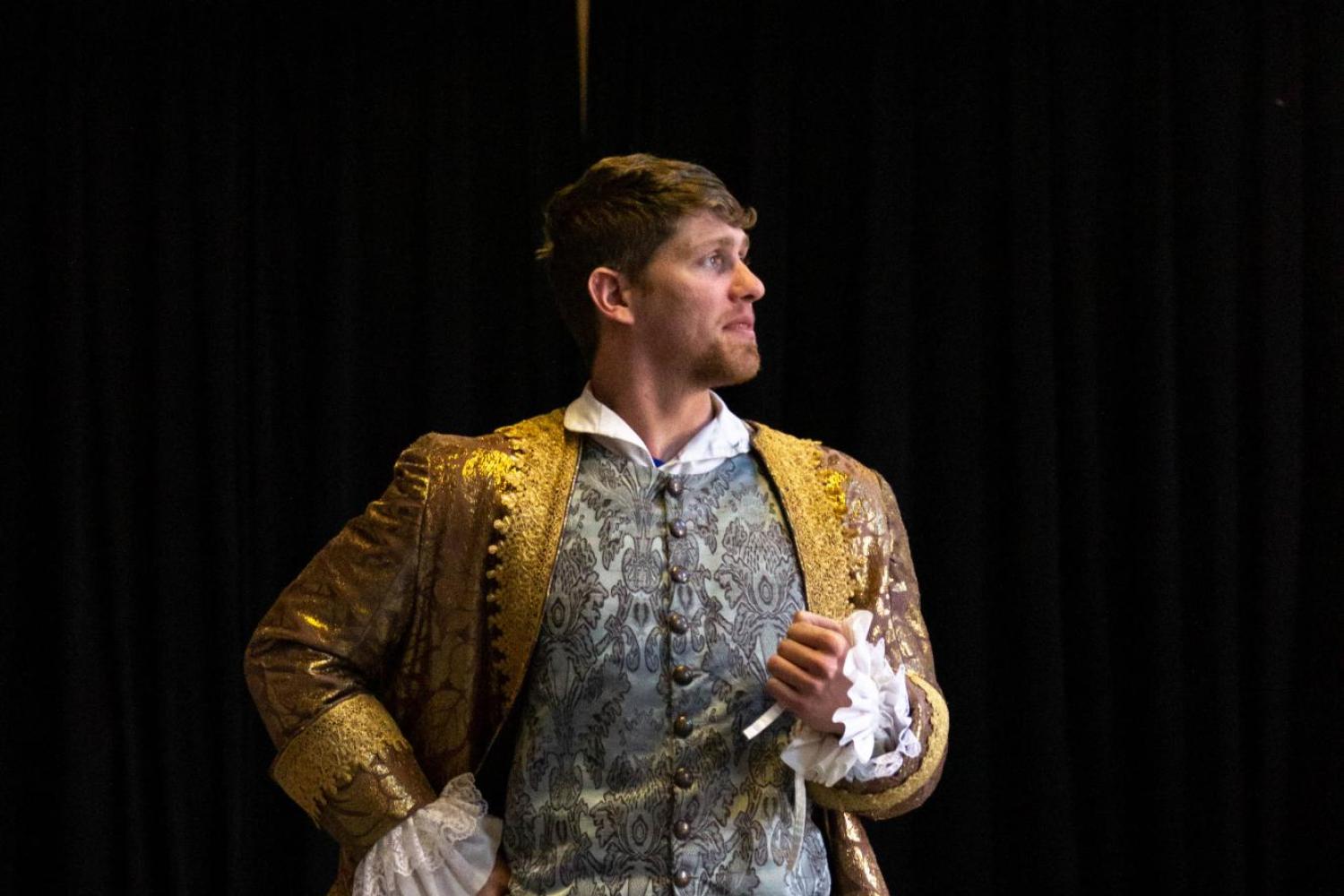Implementation
Teaching methods
The teaching methods include led group exercises, written play analysis from an actor’s point of view, prepared performance projects (monologues and/or selected scenes), followed by structured response and reflection and revisiting each performance again. Each unit will follow this order; assigned readings and introduction to the time period, instructor led physical/vocal exploration of the period style shared agreements (movement, voice and atmosphere), discussion and written analysis of an assigned play from the period, period performance work (monologue and/or scene), guided response/reflection to performed work, a final performance and reflection (discussion and written).
When the epoch is introduced in class, specific images of the period are posted around the studio for students to see, music from the period is played for students to hear (in most cases, students are taught at least one dance from the period) and students are invited to share initial responses to what they sense and feel. After this initial exposure and response, students are asked to make connections between what they are experiencing and what they have learned through the assigned preliminary readings. Students are assigned a monologue and/or scene for each time period so that they can integrate what they are learning about the time period into their embodiment of character and dramatic text. As part of the performance project, students will complete a written “Play Report” that is turned in prior to their first showing of their work.
Upon the completion of the first showing, students will receive guided feedback, using Liz Lerman’s Critical Response Process. This process will conclude with the student identifying next steps of their rehearsal, refining, and final showing process. Students will then have an opportunity to show their work a second and final time to the class and an invited audience. During second scene showings, all of the work will be presented on the same day and then the class will reflect on the work and what they learned. Each unit will conclude with the student participating in a group discussion and write an individual final reflection essay focused using the “Studio IV - Response / Reflection Guide”, created for this portfolio project.
Final Salon Project*
The cumulative project of the course is called the Period Style Salon. As a result of the course being the final required studio course in a four-semester sequence for the BFA/Acting major, and subsequent end-of-semester faculty assessment of student work, I can determine a time period appropriate project that best corresponds with the specific challenge set of the student ensemble. Each student is assigned a historically significant person of the period, who is integral to the given circumstance of the project and a scene and/or monologue that is specific to the assigned salon time period. After the student receives their assigned salon character they will begin their initial research on writing and performing their Character Biography project.
The Final Salon Project will expect the student to explore and demonstrate:
- Physical skills as defined in the period movement score: Stance, Salutations, Codes of Behavior, Use of Properties, and additional components of at least two basic dances of the time period and a theatre game composed of selected period-appropriate texts.
- Physical Character Composition and Definition: Crafted out of student research and understanding of how to create a character of another time period.
- Ability to engage the assigned character within the given circumstances and relationships of the salon project while fully embodying the style of the period.
*This final component of the course was altered due to the remote nature of the teaching and learning atmosphere experienced as a result of COVID-19. Students' “Final Salon Project” was presented by way of a fully produced radio play version of The Importance of Being Earnest by Oscar Wilde.

In Spring 2020, due to the campus transitioning to remote learning in light of the COVID-19 pandemic, the Final Salon Project was performed as a radio play. Photo by Bennet Forsyth.
Course goals / Learning outcomes
- Students will learn a way to incorporate physical and vocal work into the playing of a character in a period play.
- Students will be able to demonstrate an insightful understanding of an assigned period play and have the tools to research and create a truthful character in a given time period.
- Students will be exposed to and explore a range of different plays/playwrights appropriate to the time periods that will be studied over the course of the term.
- Students will research, perform, and be able to articulate the performance style of at least one monologue and/or scene from each time period unit of study.
- By working outside of the familiar contemporary canon of plays and genres students will be made aware of the opportunity to create expansive and truthful characters who are connected to a specific time and place by learning skills and research methods to engage fully and respond to the world of the play.
- Students will be able to respond to their own work and the work of their colleagues in the class using the Critical Response Process (by Liz Lerman) and the Response/Reflection Guide, after which time, they will be able to identify specific areas of needed improvement so that they can apply to their performance work, gain confidence, and grow.
Measures of student learning
The course activities have been structured so that each unit follows the same progression of study and reflection. This progression includes initial readings and shared response, studio exploration of period movement score and language, written play analysis and character composition, partner work (style component research/presentation and performance projects), final reflection and response to assigned style unit.
Students learn in a variety of modalities: visual, auditory, reading/writing, and kinesthetic. Each unit of study is equally constructed so that students receive and process information through all four modalities of learning. In the physical process of communication and performance, students first connect with the material through the aesthetic elements of the period, followed by processing the information intellectually and physically in order to question and demonstrate their synthesis of the period style. Each unit of study spans several class periods so that students follow the progression and have ample time to process, question, and demonstrate their understanding. By reading, writing, group exercises, analysis, composition and creation of a character in a specific period play, students are provided a clear pathway so that they may understand and experience the steps needed to approach period style performance.
In acting, the student works towards the completion of their process by sharing their work with an audience and noticing the effects of their work on the audience. It is that experience of sharing their research, understanding and composition with an audience that is the ultimate test in their ability to trust what they know and realize what they do not know so that can continue to improve. After each final showing, students will write a final reflection of their work and discuss as a group gained understanding and connection to contemporary performances and practice. How can they integrate what they have learned of the past, into their approach to the plays and performances of today?
Assessment
Within each unit of study student work is assessed in the areas in-class studio participation, written play report and character analysis, and performance projects. The areas of participation and performance projects present the circumstance for the weight of the assessment process because the student has the opportunity to demonstrate their learning in the exercise, become aware of what they can continue to work on to improve, try again, and reflect on their creative process. I will use a performance evaluation rubric in the assessment of the student work in the first showing which will be shared with the student in order that they might incorporate that feedback with the class response towards next steps and final showings of their work. I will provide students with specific guidelines for written play reports and character analysis. Each written component is factored into the final assessment for the period unit of study. The evaluation rubric and writing guidelines are included in this portfolio.
Required texts and course materials
Style for Actors – A Handbook for Moving Beyond Realism by Robert Barton. Routledge.
“The Period Movement Score: Embodying Style in Training and Performance”, by Jennifer Martin. Theatre Topics. Volume 6, Number 1, March 1996. Johns Hopkins University Press.
Chosen texts of the time period, as selected by the instructor.




